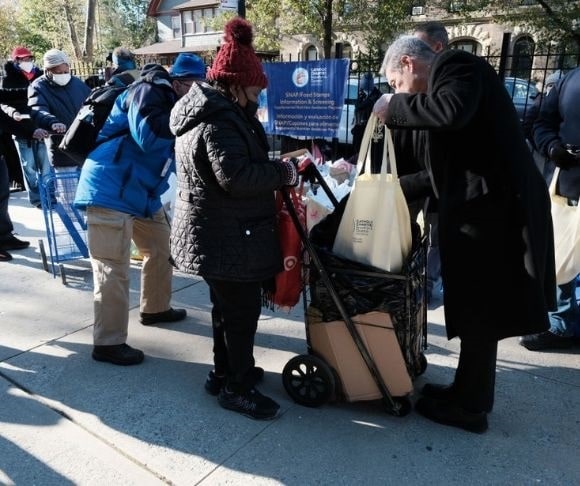It has been a rough few years for the American people. The coronavirus pandemic-era lockdowns fueled a mental health calamity, surging food and energy prices manufactured a cost-of-living crisis, and now the Federal Reserve is penciling in a recession later this year. Is it any wonder most Americans are feeling financially stressed? But while the current administration might think the present economic environment is full of ice cream and pride flags and all it takes to survive is to switch to a different raisin bran cereal, the reality is that US households are struggling, according to a new survey.
Poll: Americans Financially Stressed
Seventy percent of Americans say they are stressed about their personal finances, and 52% of respondents noted that this feeling had been exacerbated since the COVID-19 public health crisis, the latest CNBC Your Money Financial Confidence Survey revealed. Close to 60% of US adults listed inflation as the primary factor of their financial stress. This was followed by economic instability (43%), rising interest rates (36%), and a lack of savings (35%). With a banking crisis lingering in the background, 42% are now concerned about the nation’s financial system, and 44% are not confident regarding the state of banks today.
As Liberty Nation has reported in the last year, more consumers are turning to credit to keep their heads above water. The poll confirmed this again, as 58% of Americans live paycheck to paycheck and depend on credit cards to plug any holes in their budgets. Furthermore, considering that credit card debt ($986 billion) and delinquency rates (4.01%) are rising, according to a recent Federal Reserve Bank of New York report, it is understandable that a quarter aver that this revolving debt has added to their financial stress.
Of course, when nothing is left over at the end of the month, households cannot set aside any money for a rainy day. Just over half of Americans reported not having an emergency fund, and here is the kicker: 26% of those who do have a piggy bank say they have less than $5,000 socked away. So, if the refrigerator breaks down, the family car does not turn on, or a child needs a set of braces, many consumers have no other alternative but to turn to pieces of plastic, buy-now-pay-later services, or lines of credit. With interest rates continuing to climb and the era of cheap money fading to black, borrowing has metastasized into a luxury the public can no longer afford.
Typically, these types of surveys emphasize the challenges that low- and middle-income families face. However, the study revealed that more than half (57%) of six-figure households also feel financially stressed. Moreover, a third confirmed they are living paycheck to paycheck, and a quarter reported not having an emergency fund.

(Photo by Spencer Platt/Getty Images)
But the slither of good news in the CNBC-Momentive survey is that 25% would put $10,000 into a combination of stocks, bonds, and savings. Stonks to the moon!
A Brave New World
Many are taking victory laps on the news that the US annual inflation rate has slowed to its lowest level since May 2021. This might be great for politics, with the White House intimating that their efforts have successfully reined in the consumer price index (CPI), but the reality is that the cost of living is still getting more expensive. Indeed, the CPI has moderated from 9.1% in June to 5% last month, but prices are maintaining their upward trajectory at a slower pace.
Will the pre-pandemic days return? Remember, many cracks existed throughout the financial system, but a tsunami of easy money helped mask these weaknesses. Still, it is hard to fathom that “The Before Times” will be resuscitated, considering how much has changed. Public and private debt levels have exploded, the benchmark fed funds rate is at a 16-year high, everything is more expensive, and the post-invasion geopolitical landscape is being reset. That said, perhaps the US will convince itself that it is still the star of the show a la Norma Desmond from 1950’s Sunset Boulevard: “I am big. It’s the pictures that got small.”




